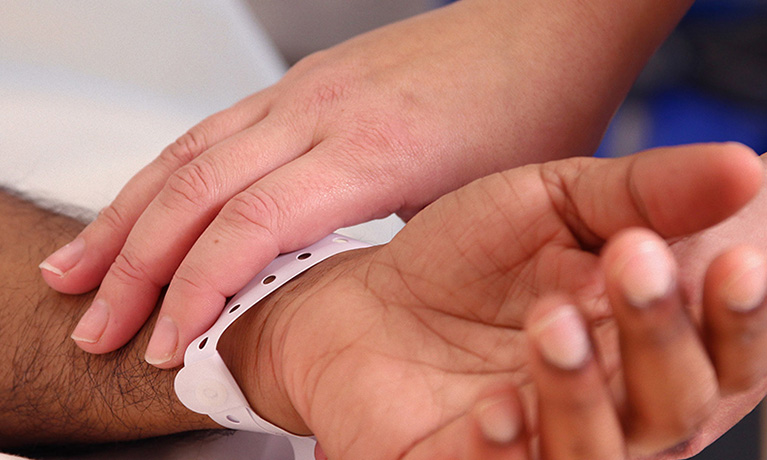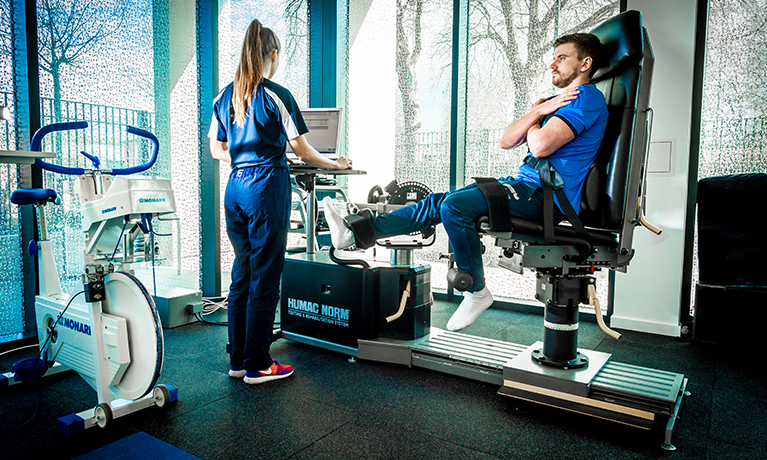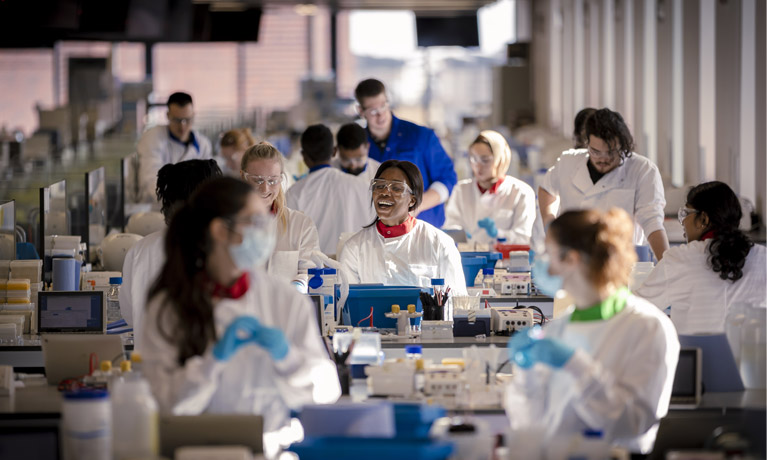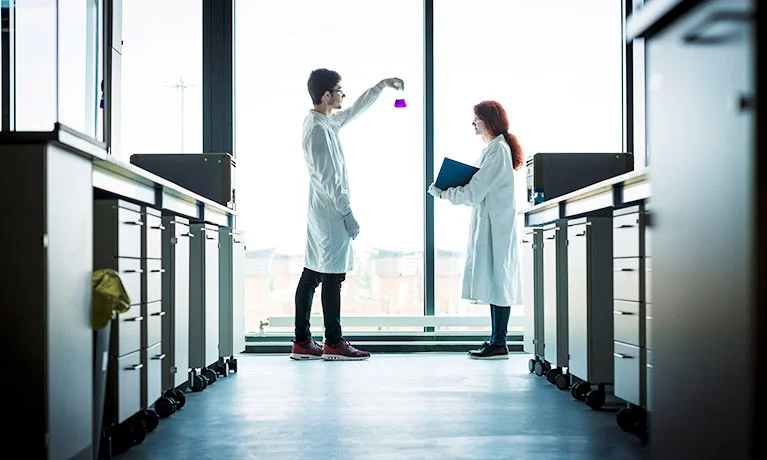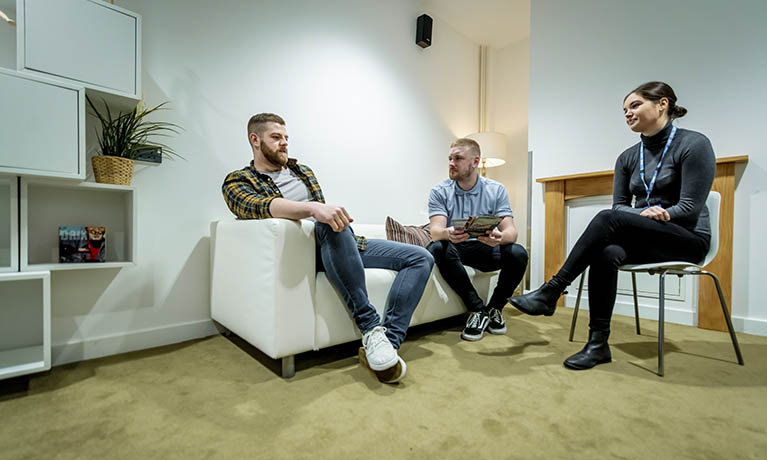The School of Health and Care at Coventry University is leading the way, equipping our students and researchers with advanced facilities and a wide range of skills and experiences to help them make a positive impact on the world.
Our facilities
Learning through exploration and simulation
Creating the next generation of Health and Life Sciences leaders and life-changing research.
Why choose us?
Rated Gold Overall
Teaching Excellence Framework (TEF) 2023
5 QS Stars Overall Rating
QS Stars University Ratings
Top 5 Student City in England (Coventry)
QS Best Student Cities Index 2026
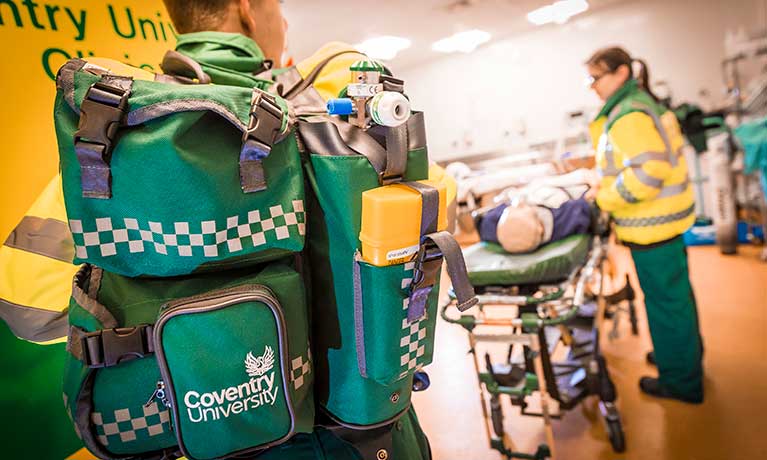
Will and Kate's tour
The Royals opened our building on 16 January 2018. Want to explore what the couple saw?
View images from the day
